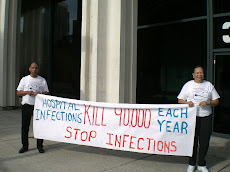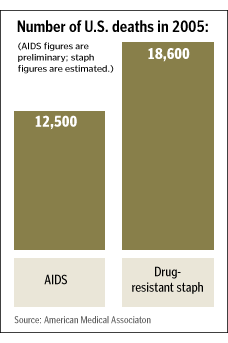By ANEMONA HARTOCOLLIS
Published: September 16, 2008
A Manhattan dialysis center closed down after State Health Department inspectors found blood on chairs and machines and discovered that at least one patient had contracted hepatitis C because of the unsanitary conditions.
More than 600 other patients treated at the center, going back nearly five years, were urged to get hepatitis and H.I.V. tests.
Claudia Hutton, a spokeswoman for the Health Department, said on Tuesday that it inspected the clinic, the Life Care Dialysis Center, at 221 West 61st Street, for a week in mid-August and found that employees had failed to wash their hands properly, disinfect equipment or change gloves between patients. Inspectors also found blood on treatment chairs.
“It was repulsive,” Ms. Hutton said. “The treatment chairs that they gave people to relax in had someone else’s dried blood on them.”
Ms. Hutton said that the clinic was ordered to begin sending its patients to other clinics immediately while the Health Department began testing patients for signs of infection.
She said that when one patient was found to have been infected by hepatitis C, a liver disease, because of contaminated equipment, the clinic shut down voluntarily.
Richard F. Daines, the state’s health commissioner, sent letters on Monday to 657 patients of the clinic going back to January 2004, the last time infection-control violations had been found, urging them to be tested for possible exposure to hepatitis C, hepatitis B and H.I.V. The clinic, which had 171 patients at the time of the inspection, agreed to pay for the testing, even if it is done by private doctors, officials said.
Ms. Hutton said there was no evidence that other patients had been infected.
Dr. Walter Wasser, the clinic’s operator and medical director, was fined $300,000 and surrendered his operating certificate, Ms. Hutton said. He could face the loss of his medical license after an investigation by the State Office of Professional Medical Conduct, Ms. Hutton said. She declined to say whether such an investigation had begun.
Dr. Wasser did not return a call for comment left with his answering service.
Ms. Hutton said that the Health Department visited the clinic in August to follow up on previous violations, not because of any specific new complaints from patients. She said the department tried to inspect clinics once a year, but was sometimes not able to do so that often because of manpower shortages and the volume of complaints.
She said the department was particularly concerned about dialysis clinics because their patients have compromised immune systems that make them vulnerable.
http://www.nytimes.com/2008/09/17/nyregion/17dialysis.html?_r=2&ref=nyregion&oref=slogin&oref=slogin
Subscribe to:
Post Comments (Atom)









No comments:
Post a Comment